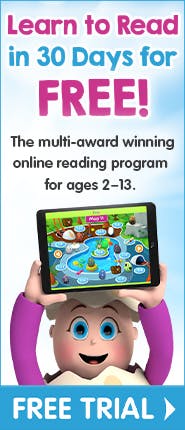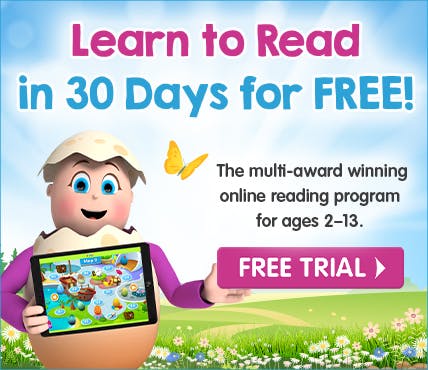


E-Books Vs Printed Books Debate

Which book format is best for encouraging early readers?
Digital technology has come a long way in recent years, opening up a world of exciting opportunities for both reading and learning.
But when it comes to e‑reading, opinions are widely varied. While many arguments in the debate are based on either practicality (e.g. carrying thousands of books on the one device) or sentimentality (what could trump the beloved smell of paper books?), we wanted to look at some benefits of both e‑books and print books for encouraging early readers.
Pros of using print books for children
Less screen time
In what is probably the most common concern for parents, one of the biggest benefits of print books is that it reduces the amount of time your child spends in front of the screen.
Children are using computers and mobile devices more than ever before for things like reading, learning and entertainment. But experts agree that a wide range of activities for children is important for their development. These include active physical play, imaginative play, hands‑on activities, and anything that involves interacting directly with other people. Print books give children the opportunity to step away from their screens and enjoy the quiet, hands‑on experience of reading a book.
Fewer distractions
Print books can be great for encouraging fidgety readers to focus on doing just that – reading. Using a mobile or tablet device which holds a range of different apps, features or games can tempt restless readers to become easily distracted and lose focus on what they're reading.
Having said that, children can also become easily distracted while reading a print book. Just having the television on in the background can interfere with their ability to concentrate. It's important to make sure your child has a quiet and distraction‑free reading environment, whether it's a print book or e‑book.
Pros of using e‑books for children
Aiding early reading skills
For emerging readers who have just begun taking their steps towards learning to read, reading on their own can be a daunting and complicated process. Pronunciation, vocabulary and fluency can be difficult obstacles that discourage and frustrate young learners.
E‑books which include audio narration give children the ability to read a story while being read aloud to. Children are able to learn new words and hear how they are properly pronounced. Read aloud options in e‑books are beneficial for both new and older readers alike; emerging readers can develop confidence in their own reading ability by following the read aloud option, while more experienced readers can test their skills by reading the book on their own and using the e‑book features to help them if they need guidance.
Interactivity and engagement
While too many add‑ons to an e‑book can be distracting, basic enhancements can be extremely helpful for engaging young readers. Children enjoy the ability to zoom in on unfamiliar words or find out the meaning of a word with a single click. Additionally, the touchscreen and buttons on an e‑reader can help toddlers develop fine‑motor skills.
However, a study by the Joan Ganz Cooney Center at Sesame Workshop found that too many e‑book enhancements, such as games, interactive animations, embedded videos and links that take readers to something unrelated to the story, can be too distracting for early readers. E‑readers with basic enhancements, such as text and audio narration and highlighted text, which relate directly to the story, were found to be a better option for young children.
Children have a lot to gain from both print books and e‑books. Parents can experiment with both formats to see which works best for their child, because at the end of the day, getting children to read is always a positive thing, whether it's a paperback book or a one‑click download.
Discover hundreds of books in Reading Eggs
Reading Eggs is developed by experienced primary educators and based on solid scientific research to help children learn to read. With over 3000 e‑books to suit all tastes and reading levels, find out how your child's reading can improve with a free trial today.


